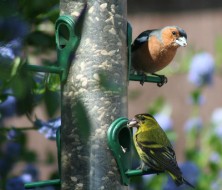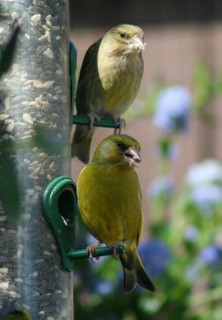Update on Trichomonosis in Garden Birds
Reports


There have been a few recent reports of birds dying at garden feeders.
These birds initially show signs of general illness, for example lethargy and fluffed-up plumage, but affected birds may also drool saliva, regurgitate food, have difficulty in swallowing or show laboured breathing. Infected birds are frequently seen to have matted wet plumage around the face and beak. In some cases, swelling of the neck may be visible from a distance. The disease is characterised by thickening and ulceration of the oesophagus and crop; it can progress to complete obstruction of the upper digestive tract.
It is caused by a trichomonas parasite. For more information including history and occurrence of this disease visit this link Trichomonosis in Garden Birds - Garden Wildlife Health
This disease does not pose a threat to the health of humans, cats, or dogs.
If birds at feeders show these symptoms, it is recommended to stop putting out food for at least a month. This will help to disperse the feeding birds and with it reduce the contact between sick and healthy individuals, thus slowing down or halting the outbreak.
If you wish to report finding dead garden birds, or signs of disease in garden birds, please
visit the website of Garden Wildlife Health